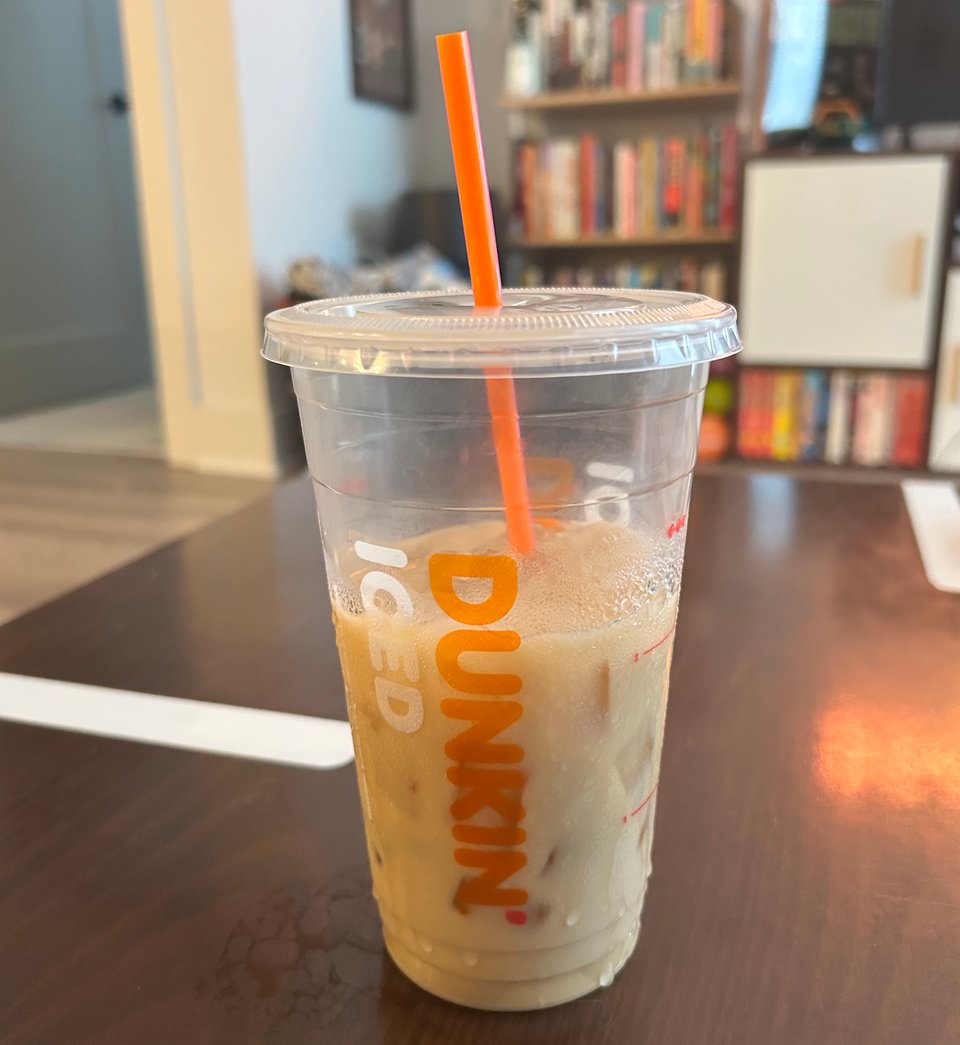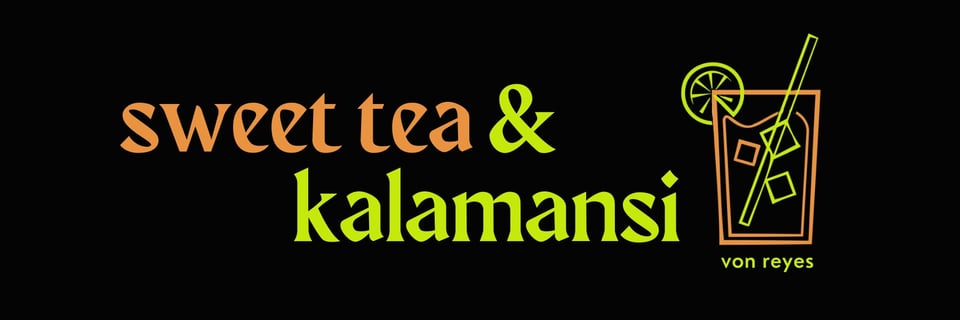"you're soft"
thank you for noticing
hey y’all,
today i’m sippin’ on a caramel iced coffee from dunkin’. for all my coffee snob tendencies, sometimes nothing beats cheap drive through dunkin’. it reminds me of when i was in college, and my roommate and i would treat ourselves on monday mornings before class. it made the slog of late adolescence a bit more tolerable.

at that age, i never imagined i’d be doing what i’m doing now. as i’ve mentioned, i’m a director of people & culture for a national human rights organization. it’s a nebulous, thankless, and boundaryless job with very little ROI. i am tasked with creating the systems of accountability, with no power to actually enforce them. so, naturally, everything ends up being my fault.
recently, one of my staff told me that i could be harder on people when they act out at work. this feedback got me thinking about why i ended up in this job in the first place, and what accountability really means. my approach to accountability is rooted in abolition and the radical belief that people can change.
one of the things i hope to do with this newsletter is make abolitionist principles accessible. i believe that one of the ways we are failing as a movement is by alienating the “every person”. at the core of good organizing is humanizing. you and me, we want the same things, and this is how we get there.
this requires an enormous amount of humility and tolerance. there will be people we want to join us in creating a better world who do not share our values. there will be people who have been doing this work for decades who do not share our values.
it is absolutely necessary to be able to reach one another and unify. so, here’s a real quick study guide to abolition from critical resistance that i return to often. take 5 minutes to read it over and come back to me (no really, please go read it but also please come back).
okaythankyouletsgo.
i’m going to spend a lot of time writing about abolition in sweet tea & kalamansi and how i try to practice it in my everyday life. it is the cornerstone of my values. today, i want to focus this specifically:
putting people in cages does not solve any
of the problems that lead to harm.
even if the cages are metaphorical, such as workplace write-ups or social ostracization. it is so much easier to believe that some people are bad, and some people are good, and the bad ones must be punished and removed from “civilized” society. further, in order to be good we must proactively identify the bad ones and punish them.
this way of thinking is central to an unexamined, disconnected life. there are plenty of scholars out there discussing the roots of this perspective in white supremacy and colonization that are highly worth your time. i put a beginner’s guide to abolition at the end of this one if you’d like to keep reading.
that’s not exactly my starting point. maybe you don’t believe in white supremacy or colonization, but you know that something about how we’re living now just isn’t right. i hope to offer you a place to begin. think about a time when you got caught making a mistake, or, even when you intentionally made a decision that you knew was wrong.
what happened when you get caught? did you get yelled at? did someone hit you? did you get written up? did someone call you out on social media? did people talk about you behind your back and stop inviting you to things?
did being punished for your wrongdoing motivate you to change your behavior?
in my first semester of graduate school, i had a required core class in criminology (the study of crime through a sociological lens). we learned about different parenting styles and their impact on their children’s behavior when they reached adulthood. one such study that stuck with me is the classification of spanking as an adverse childhood experience (ACE). the CDC definition of an ACE is any stressful or traumatic event in childhood that disrupts their development.
ACEs are often used in social work to determine the cause of negative adult behaviors, poor mental health, or criminal activity. for example, every serial killer you can think of had a series of ACEs in their childhood. i believe in the science of humanity, and this study makes a compelling argument that spanking is an ACE.
i shared this article last week about the origins of maslow’s theory of need being rooted in his discovery of indigenous societal structures. consider this excerpt:
As [Maslow] wrote, “When someone was deviant, [the Siksika] didn’t peg them as deviant. A person who was deviant could redeem themselves in society’s eyes if they left that behavior behind” (Blood & Heavy Head, 2007, video 7 out of 15, minutes 15:44–16:08). Maslow then wondered whether the answer to producing high self-actualization might lie in child-rearing. He found that children were raised with great permissiveness and treated as equal members of Siksika society, in contrast to a strict, disciplinary approach found in his own culture. Despite having great freedom, Siksika children listened to their elders and served the community from a young age (ibid, minutes 16:35–17:07).
maslow’s work has done a great deal in our culture to legitimize creating systems of safety as a means to respond to societal dysfunction. however, i have always held the position that the function of academy is to help us legitimize what we already know to those who hold the power to change our circumstances. in other words, i don’t need a study to tell me that spanking leads to negative outcomes as an adult. every time my parents hit me, i learned to keep my wrongdoings a secret. i did not learn how to correct my behavior.
the same is true of our justice system, and of workplace accountability practices. people do not improve their behavior if they fear they will be punished for being wrong. in order to get better, we must have room for the lessons of failure. i believe that the reason we gravitate toward punishment in the united states is because we are attempting to avoid grief. if someone just pays for what they did, we don’t have to reckon with how their actions have changed us forever.
while sitting with this comment that i’m not hard enough on people, it got me thinking about what i needed when i was in the worst parts of my life. i was making bad choices all the time and lashing out at the people i loved. the last thing i wanted was to be seen as “soft.” i had an ironclad, impenetrable armor. i believed if i was emotionally and spiritually numb, then i would be incapable of getting hurt.
what i needed was for someone to sit me down and say “hey. i can see that you’re in pain and your needs aren’t being met. the way you’re behaving is doing a lot of damage to yourself and others. what support can i offer you to get you to a more secure place?” i would’ve also needed them to do that in private, where i wasn’t braced for reputation destruction.
that is how i approach workplace accountability. i have challenging, private conversations with people almost every day. i got into this work because i truly believed that radical, transformative, decolonized systems of accountability are the future of work at movement organizations. i believed that the best place to begin a massive cultural shift in the modern workplace was in nonprofit organizations dedicated to liberation, because they already believed in abolition.
i have never been more wrong about something in my life. what i have found over the last 5+ years of this grueling experiment, is that people who believe themselves to be liberators are much harder to reach. their identities are built upon their absolute certainty that they are “good” and everyone else is “bad.” they need to prove it every day by scanning the people around them for “badness” and being the first to call it out.
at this point, you might be thinking, “okay, but then what do we do with people who hurt people?”
i think we hold each other truly accountable with outstretched hands. accountability is about our willingness to take responsibility for ourselves. this willingness is nurtured by creating safety within and outside of ourselves. shame, fear of punishment, and exile are antithetical to genuine accountability and repair.
this vision of the future does not beget easy solutions. it demands so much grace and effort. it requires us to face the worst things humans do to each other without shying away from the pain they cause. it asks us to hold anguish and hope without choosing between them.
this is the starting place of abolition work, to me - integrating harm into our expectations of human connection. we will hurt each other. this is just as true as all of the beautiful ways we will care for each other. sometimes we will hurt each other in disgusting, unspeakable ways. it is what we do next that defines society.
now, being soft is my aspiration. i am not a naturally gentle person. i harbour an enormous amount of rage. my ACEs have made me hard and self-protective, and i’m having to unlearn my survival techniques to live a life i’m proud of. i actively work to be a safe harbor to anyone who might need me to advocate for them, even the “worst” of us in society.
when real care for our fellow huma is the focus, repair is the goal. repair requires a belief that perpetrators can be reformed. reform is not possible if the opportunity doesn’t exist.
xoxo,
kuya von
non-exhaustive beginners abolition study guide:
what is abolition? - olurinatti
what about the rapists and pedophiles? - kathrin
abolition as a transnational, anti-colonial struggle - robyn maynard
queer (in)justice - mogul, ritchie, & whitlock
be like water, an abolitionist relationality - ki’amber thompson (this one is my favorite)

i showed you my gooey center, please respond 👉👈
(you can reply directly to this email)
“don't you remember how we used to split a drink? it never mattered what it was. i think our hands were just that close. the sweetness never lasts, you know.”
jet pack blues, fall out boy
if you liked this, you’ll love vonreyes.com
eat local, buy small press, support your local library, and don’t call the police <3
